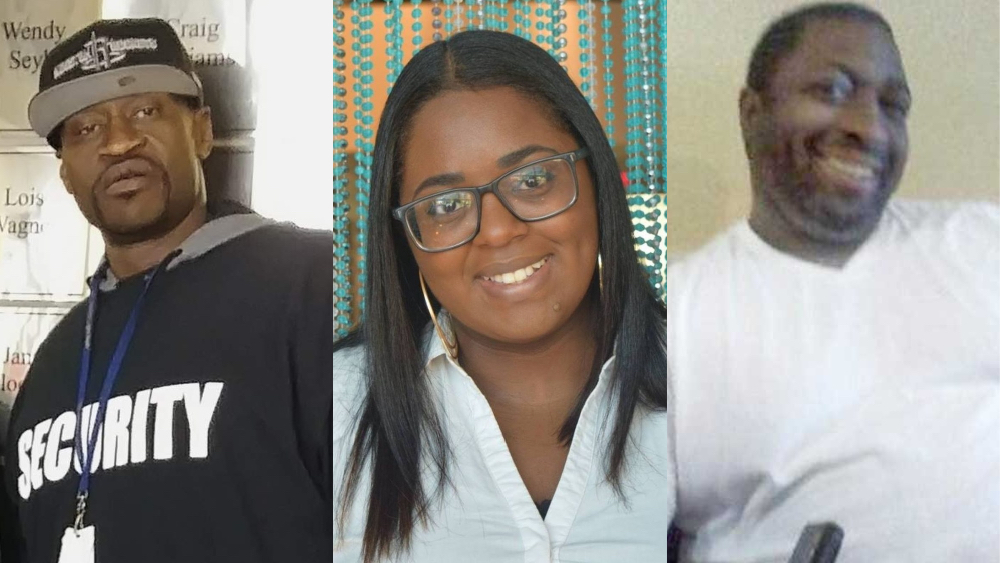If you’re interested in sharing your opinion on any cultural, political or personal topic, create an account here and check out our how-to post to learn more.
____
When I heard George Floyd say, “I can’t breathe,” I thought of Eric Garner. I thought of the many Black people fighting COVID-19 — who literally can’t breathe and, in some states, are dying at rates 70% higher than the rest of the population. It’s easy, maybe even comforting, to think of these as respiratory experiences. But they are also experiences of the underlying violence that makes breathing impossible for so many Black people.
Black lives are being — have long been — threatened. In response, we have signed petitions. We have gone to the protests. We’ve demanded jail time. And yet we still can’t breathe.
When will the obligation for demanding Black breath and not Black death lie with society and not with us alone? Our deaths — our inability to breathe — are not going to be stopped by our protests of outrage or by rooting out the “bad actors.” We need ongoing long-term strategies to dismantle the deep-rooted racialized structures that give rise to these deaths. We need strategies that change that system from the bottom up. Strategies that don't valorize order at the expense of the suffocation of Black lives through violence, poverty, joblessness… Strategies that don't pay lip service but rather honor Black humanity and Black thriving.
In 1965 Martin Luther King, Jr. courageously identified our society as spiritually corrupt and called on us to be “creatively maladjusted” to this corruption. Unfortunately, we appear to lack the courage to be maladjusted. We continue to function as though the system is not corrupt and we are bound to win on the strength of our aggressive petitioning and outraged protests. This is — has always been — flat-out wrong.
The existential threat to Black America presents us all with a political challenge that is a deeply moral challenge. Simple policy solutions will accomplish nothing without a moral understanding of where we are right now. Whether through systemic violence wrought by over-policing our communities, underfunded policies or miserly wages, we are in a pandemic that is costing tens of thousands of Black lives. How can we take this pandemic moment to honor the dead by demanding justice? How can we rethink society in a way that centers the healing and thriving of all people as opposed to continuously retraumatizing ourselves through all the killings? We need to look at public health systems, education systems, economic systems that provide living wages, and all the underlying issues that impact Black people’s — all people’s — ability to breathe healthy lives.
The day that George Floyd died, Dr. Bernice King, the daughter of Dr. Martin Luther King Jr., tweeted an image of the police officer with a knee on George Floyd’s neck beside one of Colin Kaepernick taking a knee. She stated: "If you’re unbothered or mildly bothered by the 1st knee, but outraged by the 2nd, then, in my father’s words, you’re more devoted to order than to justice. And more passionate about an anthem that supposedly symbolizes freedom than you are about a Black man’s freedom to live."
How serious are we about saving Black lives as an essential step in saving society?
When we are in a survival struggle of epic proportions, no one is allowed to pay mere lip service to the cause. Yet we have seen that when the Republicans recognized who is being killed by COVID, they decided to open up the economy. We have to make explicit the political and moral connections between the deaths of George Floyd, Eric Garner and Rana Zoe Mungin — the Black Brooklyn teacher who was twice denied Coronavirus testing and died after a month of fighting the virus.
We need a longer-term strategy to dismantle what is in the way of Black people being able to live. Resistance that continues to operate within the mode of our existing systems through a constant streaming narration of Black pain and death fails to rise about the level of trauma-inducing rhetoric and exhausting activity. It won't be easy, it won't be fun and whatever gains we can make won't come easily. But the only way out of this nightmare is together, and that means organizing for collective power with creative maladjusted strategies. One such strategy might be embracing contact tracing.
Contact tracing is being put forward as a way to understand who is being impacted by COVID. But what if we think of contact tracing as a way to examine more broadly who has been impacted by systemic traumas, by poverty, by over-policing, by racism, with the aim of not only identifying trauma but also developing the strategies to eliminate them. Community organizing — by which I mean engaging in long-term collective power building to transform structures of violence — illustrates how this form of contact tracing can be done. The very backbone of organizing is to identify, map and connect our relationships to each other and our collective relationship to structural violence and to then move together to change the very policies that are affecting our very ability to breathe. From the underground railroad to the civil rights movement, people depended on their relationships to protest injustice and envision and actualize change.
Can we imagine our future not based on the instability of a service consumerist economy and use this moment to recreate an economy that is centered on human and earth thriving and not extraction? Can we imagine stay-at-home orders not as a moment to hunker down in fear but as a time to map out our relationships, develop phone and text trees, start checking in on each other and start dreaming together? Can we imagine Black breathing not only as a human right but as a societal commitment?
____
Rodney McKenzie, Jr. is Executive Vice President of Movement Strategies at Demos.
